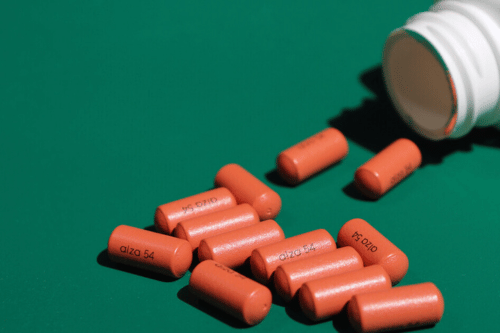Is Concerta Addictive? Understanding Risks, Signs, and Support Options
Concerta is a prescription stimulant often prescribed to individuals, including children and adults, with Attention Deficit Hyperactivity Disorder (ADHD). It is classified as a Schedule II drug by the Drug Enforcement Administration, indicating its potential for misuse and addiction. It is effective in improving focus, impulse control, and attention. However, because Concerta belongs to a class of prescription stimulants known for their potential for misuse, concerns about addiction have become prevalent. Understanding the risks associated with Concerta, including addiction, withdrawal symptoms, and overdose, is critical to preventing misuse and recognizing when substance abuse treatment may be necessary.
This article explores whether Concerta is addictive, how addiction develops, common symptoms of withdrawal, and the available treatment options to help individuals struggling with Concerta dependence or misuse.

What Is Concerta and How Does It Work?
Concerta contains methylphenidate, a central nervous system (CNS) stimulant that affects chemicals in the brain responsible for focus, behavior regulation, and impulse control. It is prescribed to manage ADHD symptoms such as hyperactivity and difficulty concentrating. Because of its stimulant properties, Concerta is sometimes misused to enhance performance or improve alertness.
Methylphenidate increases the levels of dopamine in the brain, promoting concentration. However, this boost in dopamine also triggers a sense of euphoria when taken in large doses or without medical need, making it prone to compulsive misuse.
Is Concerta Addictive?
Yes, Concerta can be addictive, especially if used improperly. When someone takes the drug beyond the prescribed dosage or uses someone else’s prescription, the risk of addiction increases. Individuals who misuse Concerta may feel a false sense of control initially but can quickly become dependent on the substance.
Stimulant use disorders develop when a person becomes physically or psychologically dependent on Concerta. The Diagnostic and Statistical Manual of Mental Disorders (DSM-5) recognizes prescription stimulant use disorder as a legitimate condition, highlighting the growing issue of stimulant misuse in the United States.
Behavioral Signs of Concerta Addiction
Addiction to Concerta can manifest through various behavioral changes. If left unaddressed, drug use behaviors may escalate, leading to long-term health risks. Some common signs of Concerta addiction include:
Concerta misuse: Taking the drug more frequently or in higher doses than prescribed.
Using others’ prescriptions: Borrowing or buying Concerta illegally.
Compulsive misuse: Continuing to take the drug despite harmful consequences.
Drug abuse and substance abuse patterns: Using Concerta to feel energized or euphoric, beyond medical purposes.
Withdrawal symptoms: Experiencing emotional and physical discomfort when the drug is not taken.
If these behaviors are present, the individual may benefit from substance abuse treatment to manage their addiction effectively.

What Are the Side Effects and Risks of Concerta?
Misusing Concerta increases the likelihood of experiencing serious side effects and health complications. These side effects may vary depending on the dosage and frequency of use.
Physical and Mental Side Effects of Concerta:
Weight loss and loss of appetite
Irregular heartbeat or increased heart rate
Excessive sweating
Severe depression
Hyperactive behavior
Impulse control issues
Abnormal behavior
Risks of Concerta Overdose
Overdosing on Concerta is dangerous and can cause life-threatening complications. Symptoms of a Concerta overdose include:
Chest pain or signs of a heart attack
Extreme anxiety and restlessness
Rapid or irregular heartbeat
Excessive sweating
Hallucinations or delusions
If an overdose occurs, immediate medical intervention is required to prevent serious health outcomes.
Withdrawal Symptoms of Concerta
When someone becomes dependent on Concerta, they may experience uncomfortable withdrawal symptoms after stopping the medication. Withdrawal symptoms often include:
Severe depression
Fatigue and irritability
Abnormal behavior
Difficulty concentrating
Cravings for the drug
These withdrawal symptoms can interfere with everyday life and may require medical detox to manage safely. Concerta withdrawal symptoms are often treated as part of a comprehensive treatment plan that includes both medical care and mental health services.

How to Manage Concerta Addiction
Overcoming Concerta addiction involves more than stopping the medication. Treatment for Concerta addiction requires medical supervision during withdrawal and the integration of psychotherapy and behavioral therapies post-detox. Effective treatment requires a combination of addiction treatment programs, mental health services, and relapse prevention strategies. Below are some key treatment options for individuals struggling with Concerta misuse.
1. Outpatient Programs
Outpatient treatment offers flexibility, allowing individuals to receive counseling and support while maintaining their daily responsibilities. Outpatient care may include group therapy, individual counseling, and behavioral therapies such as contingency management, which rewards positive behaviors.
2. Inpatient Treatment Programs
For severe cases of addiction, inpatient programs provide 24-hour medical supervision and a structured environment. These programs help individuals focus entirely on their recovery and avoid triggers associated with drug use.
3. Medical Detox
Medical detox helps manage uncomfortable withdrawal symptoms in a safe, supervised setting. This approach is essential for individuals experiencing severe withdrawal, as it reduces the risk of complications.
4. Behavioral Therapy
Therapies such as Cognitive Behavioral Therapy (CBT) help individuals address the underlying causes of drug addiction and develop healthy coping strategies. Behavioral therapy is an integral part of substance addiction treatment.
Seeking Help for Concerta Addiction
If you or a loved one is struggling with Concerta addiction, it’s essential to seek professional help. Concerta addiction is a treatable condition, and with the right support and guidance, individuals can overcome their addiction and achieve long-term recovery.
The first step in seeking help is to consult with a healthcare professional, such as a doctor or a therapist. They can assess the individual’s condition and provide a referral to a treatment center or a rehabilitation program.
There are various treatment options available for Concerta addiction, including:
Inpatient treatment programs: These programs provide 24/7 supervision and support in a residential setting.
Outpatient treatment programs: These programs offer flexible scheduling, allowing individuals to continue with their daily routines while receiving treatment.
Counseling and therapy: Individual and group therapy sessions can help individuals address underlying issues and develop coping strategies.
Support groups: Joining a support group, such as Narcotics Anonymous, can provide a sense of community and accountability.
It’s crucial to choose a treatment program that is tailored to the individual’s specific needs and circumstances. A comprehensive treatment plan should include:
Detoxification: A medically supervised process to safely manage withdrawal symptoms.
Medication management: Medications may be prescribed to manage withdrawal symptoms, cravings, and other related issues.
Behavioral therapy: Cognitive-behavioral therapy (CBT) and contingency management (CM) are effective therapies for treating Concerta addiction.
Aftercare: Ongoing support and guidance to help individuals maintain their recovery and prevent relapse.
Seeking help for Concerta addiction is a courageous step towards recovery. With the right treatment and support, individuals can overcome their addiction and lead healthier, more fulfilling lives.
Preventing Concerta Abuse and Addiction
Preventing Concerta abuse and addiction requires a multi-faceted approach that involves individuals, families, and communities. Here are some strategies to help prevent Concerta abuse and addiction:
Education: Educate individuals, especially students and young adults, about the risks and dangers of Concerta abuse and addiction.
Monitoring: Monitor prescription medication use, especially in households with children or teenagers.
Secure storage: Store prescription medications, including Concerta, in a secure location to prevent unauthorized access.
Proper disposal: Dispose of unused or expired prescription medications, including Concerta, properly to prevent diversion and misuse.
Alternative treatments: Explore alternative treatments for ADHD, such as behavioral therapy and lifestyle changes, to reduce the risk of Concerta abuse and addiction.
Community involvement: Engage in community-based initiatives and programs that promote healthy lifestyles and substance abuse prevention.
By working together, we can prevent Concerta abuse and addiction and promote healthy lifestyles and well-being. Educating ourselves and our communities about the risks and taking proactive steps can make a significant difference in reducing the incidence of substance abuse.
The Importance of Mental Health Support
Addressing Concerta addiction requires comprehensive care, including support for underlying mental disorders. Mental health professionals play a critical role in identifying and treating co-occurring conditions such as anxiety, depression, or other behavioral disorders.
Organizations such as the National Institute and the Mental Health Services Administration recommend integrating mental health services into addiction treatment programs to improve outcomes for individuals with stimulant use disorders.
Concerta and ADHD Treatment: Striking a Balance
Although Concerta is effective for managing ADHD symptoms, it should be used cautiously to avoid dependence. Taking Concerta as prescribed and under the supervision of a healthcare provider is essential to minimize the risks. Some individuals may wonder whether they will develop a tolerance over time. While tolerance can occur, regular monitoring by healthcare providers helps ensure the medication is effective without increasing the risk of addiction.
Conclusion
Concerta is a powerful prescription stimulant that offers significant benefits for treating ADHD. However, it also carries the risk of addiction, especially when misused. Understanding the signs of Concerta addiction, including withdrawal symptoms and drug abuse behaviors, is crucial for identifying problems early and seeking help.
If you or someone you know is struggling with Concerta misuse or addiction, seeking help through substance abuse treatment and mental health services is essential. Treatment programs tailored to individuals with stimulant use disorders offer a path to recovery and improved well-being.
By balancing ADHD treatment with proper medication management, individuals can benefit from the therapeutic effects of Concerta while minimizing risks. Professional support, behavioral therapy, and substance addiction treatment are critical components of a sustainable recovery journey.









